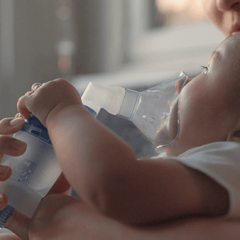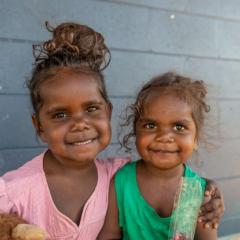Medical researchers have gained a better understanding of how nitric oxide gas impacts children during and after heart surgery following the world’s largest study of its kind.
Lead author and University of Queensland Associate Professor Luregn Schlapbach, from the Child Health Research Centre, said congenital heart disease affects about one in 100 infants with around half needing heart surgery during the first years of life.
“This randomised trial investigated whether adding nitric oxide into the heart-lung machine during heart surgery reduced the need for mechanical ventilation in young children following surgery,” Dr Schlapbach said.
“The findings show no difference in ventilation needs by study participants who received nitric oxide and those who did not during their first four weeks in intensive care after heart surgery.”
Senior collaborator Professor Warwick Butt from the Royal Children’s Hospital Melbourne said the trial had developed strong national and international collaborations across The Perth Children’s Hospital, The Royal Children’s Hospital, The Children’s Hospital at Westmead, Queensland Children’s Hospital, Starship Children’s Hospital and The Wilhelmina Children's Hospital.
“This trial provides a platform to answer key questions to improve the care of these children, including analysis of gene activation patterns to find out which biological processes could be targeted in the future,” Dr Butt said.
“While the trial has shown no effect on intensive care measures, we have reason to believe there may be longer-term beneficial effects on brain functioning.”
The UQ Child Health Research Centre’s Associate Professor Kristen Gibbons said the trial has led to investment from the Medical Research Futures Fund in a five-year follow-up study of the children in the trial into school age to understand the true long-term impact of congenital heart disease.
“The trial involved 1371 children across six paediatric heart surgery centres in Australia, New Zealand and the Netherlands, who will now have access to gold standard neurodevelopmental follow-up as part of our further research,” Dr Gibbons said.
The trial was led by the Australian and New Zealand Intensive Care Society (ANZICS) Clinical Trials Group and the ANZICS Paediatric Study Group; one of the internationally leading paediatric intensive care research networks.
The research was supported by grants from the National Health and Medical Research Council (NHMRC; GNT1140322), Australia; HeartKids Foundation, Australia; Children’s Hospital Foundation, Brisbane, Australia; Perth Children’s Hospital Foundation, Australia; Green Lane Research and Educational Fund, New Zealand; and by the Dutch national Health Insurance Innovation Fund.
This study is published in the journal JAMA (DOI: 10.1001/jama.2022.9376).



